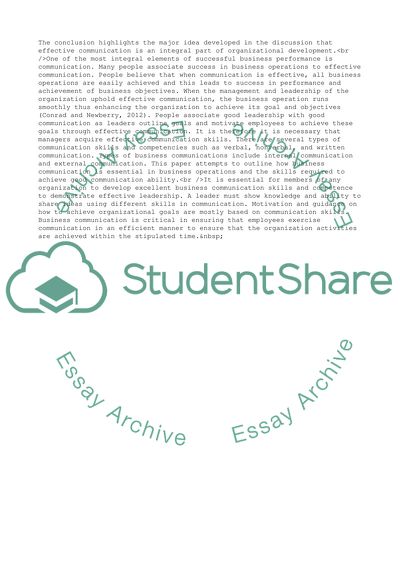Cite this document
(Importance of Effective Business Communication Coursework Example | Topics and Well Written Essays - 1500 words, n.d.)
Importance of Effective Business Communication Coursework Example | Topics and Well Written Essays - 1500 words. https://studentshare.org/business/1809139-professional-competence-report-regarding-communication-skills
Importance of Effective Business Communication Coursework Example | Topics and Well Written Essays - 1500 words. https://studentshare.org/business/1809139-professional-competence-report-regarding-communication-skills
(Importance of Effective Business Communication Coursework Example | Topics and Well Written Essays - 1500 Words)
Importance of Effective Business Communication Coursework Example | Topics and Well Written Essays - 1500 Words. https://studentshare.org/business/1809139-professional-competence-report-regarding-communication-skills.
Importance of Effective Business Communication Coursework Example | Topics and Well Written Essays - 1500 Words. https://studentshare.org/business/1809139-professional-competence-report-regarding-communication-skills.
“Importance of Effective Business Communication Coursework Example | Topics and Well Written Essays - 1500 Words”. https://studentshare.org/business/1809139-professional-competence-report-regarding-communication-skills.


